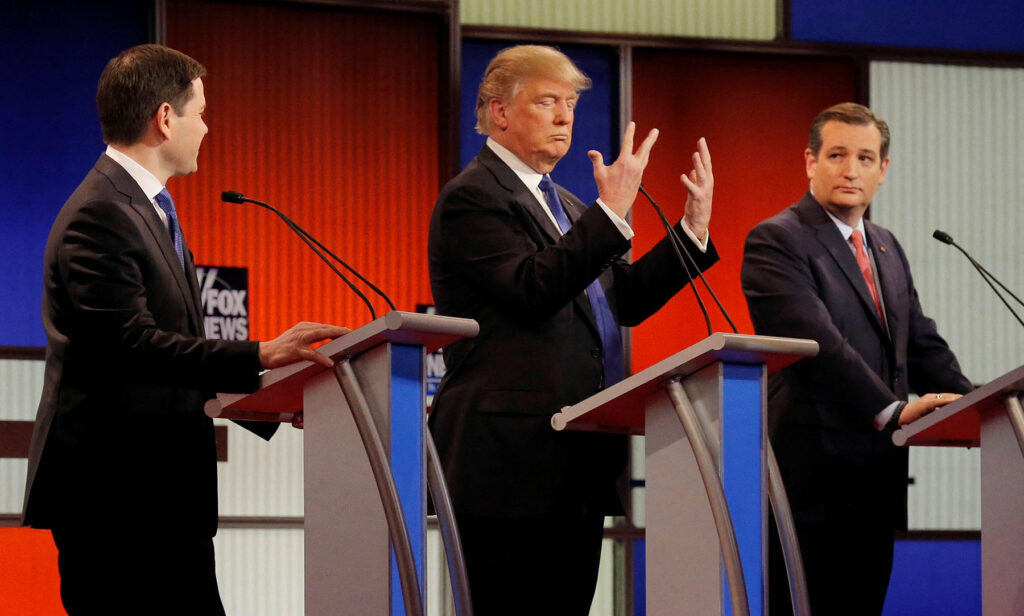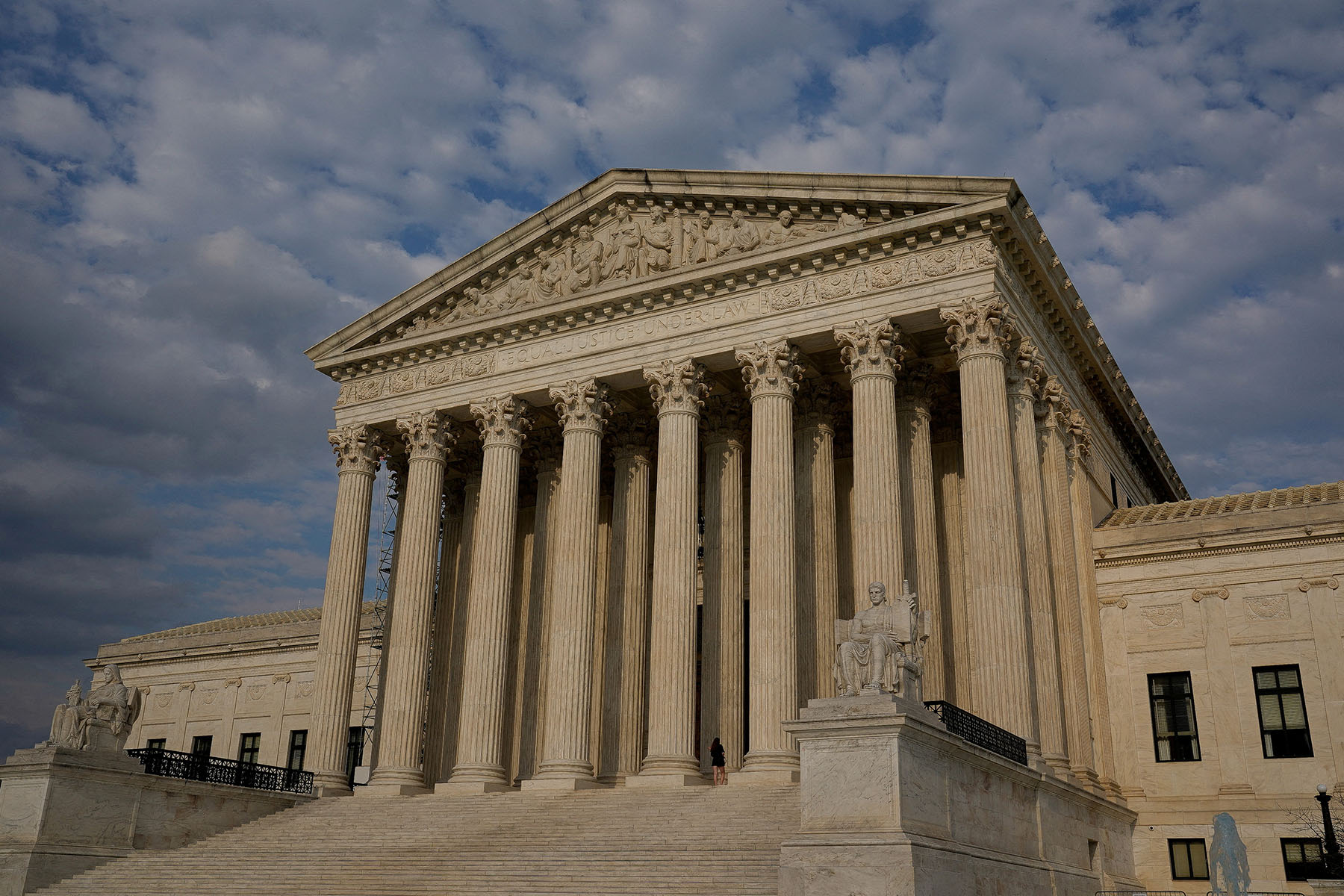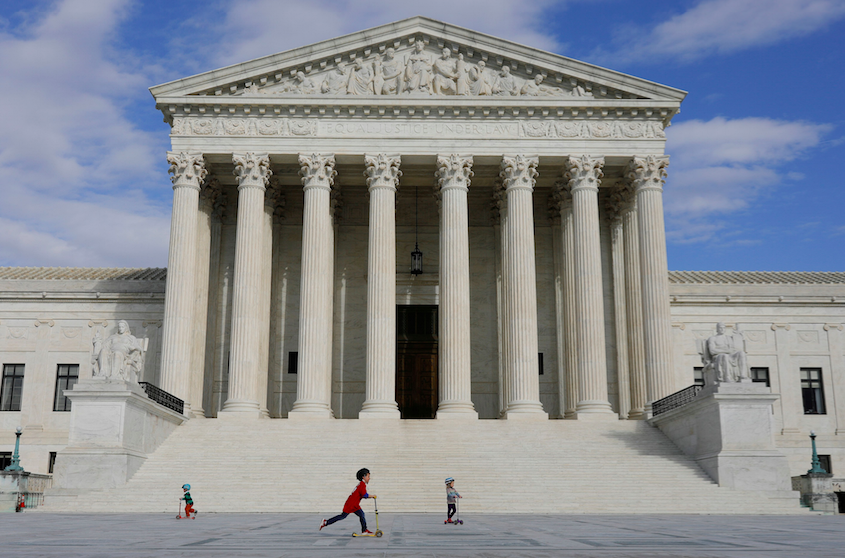The Supreme Court decided June 5 to hear a California attorney’s case in which he requested to trademark the phrase “Trump too small.” The insult was initially made by Florida Senator Marco Rubio during the 2016 presidential campaign in which he said former President Trump had “small hands … And you know what they say about guys with small hands.”
Steve Elster, the California attorney, wished to use the phrase on the front of T-shirts which list certain positions on public issues in which “Trump’s package is too small” on the back. For example, “Small on the environment; small on civil rights; small on LGBTQ rights,” among other things.
The Patent and Trademark Office rejected Elster’s request, citing Section 1052(c) of the Lanham Act. The federal law prohibits federal registration of any trademark that “[c]onsists of or comprises a name … identifying a particular living individual except by his written consent.”
A three-judge panel of the U.S. Court of Appeals for the Federal Circuit unanimously reversed the Patent and Trademark Office’s decision, finding that the trademark sought by Elster “is speech that is otherwise at the heart of the First Amendment.”
“The government has no valid publicity interest that could overcome the First Amendment protections afforded to the political criticism embodied in Elster’s mark,” wrote Judge Timothy B. Dyk in the decision. “As a result of the president’s status as a public official, and because Elster’s mark communicates his disagreement with and criticism of the then-president’s approach to governance, the government has no interest in disadvantaging Elster’s speech.”
The Biden Administration appealed the ruling to the Supreme Court, presenting the question: “Whether the refusal to register a mark under Section 1052(c) violates the Free Speech Clause of the First Amendment when the mark contains criticism of a government official or public figure.”
In Elster’s brief in response, he argues that “the statute makes it virtually impossible to register a mark that expresses an opinion about a public figure — including a political message (as here) that is critical of the president of the United States.”
The Supreme Court is expected to hear the case in the fall.
Feb. 24, 2022 — U.S. Court of Appeals for the Federal Circuit decision
January 2023 — Biden Administration Appeal
April 25, 2023 — Steve Elster response
Tags


